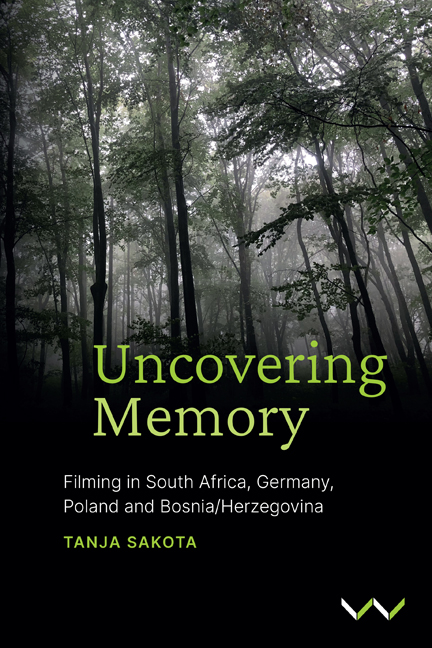Book contents
- Frontmatter
- Dedication
- Contents
- List of Images
- Foreword
- Acknowledgements
- Map of Africa and Europe
- Practice-Based Research, Teaching and Learning
- Part I Working With Students: Cape Town, Johannesburg, Berlin
- Part II Working With Peers: Constitution Hill, Johannesburg
- Part III Working With Myself: Poland, Germany, Bosnia/Herzegovina, South Africa
- Moving Forward
- Film Credits
- Glossary of Terms
- Notes
- Bibliography
- Index
Foreword
Published online by Cambridge University Press: 24 November 2023
- Frontmatter
- Dedication
- Contents
- List of Images
- Foreword
- Acknowledgements
- Map of Africa and Europe
- Practice-Based Research, Teaching and Learning
- Part I Working With Students: Cape Town, Johannesburg, Berlin
- Part II Working With Peers: Constitution Hill, Johannesburg
- Part III Working With Myself: Poland, Germany, Bosnia/Herzegovina, South Africa
- Moving Forward
- Film Credits
- Glossary of Terms
- Notes
- Bibliography
- Index
Summary
Usually, from where I live, I have a clear view of Robben Island lying peaceably off towards the horizon, flecked at its base by tiny whitecapped waves of the cold Atlantic. This evening, towards the end of August 2021, it looks as if someone has thrown a thick ridged blanket of cloud over the island and none of it is visible. All the time I have lived here, I have been able to see it whenever I have looked out of my study window, causing me to reflect on the men who were imprisoned there and the women who travelled – sometimes in vain – to see them. It has been a constant reference point, a metonym for our story of suffering. Former inmate Ahmed Kathrada apparently wanted us to believe that it also stands for the decisive defeat of the ‘forces of evil’ responsible by the humanity and wisdom of his comrades.
One of the sites of a workshop Tanja Sakota describes and analyses in this wonderful book is Constitution Hill, which similarly tries to round off a history of incarceration and torment with the crowning glory of the Constitution and what the media nowadays like to dub the ‘apex court’, built on the site of the notorious old prison complex. Not that I would like to be seen as at all casting aspersions on either the Constitution or the institutions designed to protect it. I think I am of the same mind as people like lawyer and scholarwriter Tembeka Ngcukaitobi, who believe that the Constitution is only the beginning and the journey is far from done. Through her workshopping exercises, Sakota develops the notion of Con Hill as a counter-monument, which dodges definitive resolutions and trouble-free redemption. The short films made by her workshop participants, highlighted by Sakota for the purposes of this book, show that Con Hill may be haunted by the spirits that have not yet been fetched home and still seem to reach impotently for barbed-wire parcels of sky above the prison yard. By paying close attention, through the making and interpreting of their films, the workshop delegates have heard the anguish, long after the last prisoner has departed, continuing to emanate from the very walls of the cells.
- Type
- Chapter
- Information
- Uncovering MemoryFilming in South Africa, Germany, Poland and Bosnia/Herzegovina, pp. xv - xxPublisher: Wits University PressPrint publication year: 2023



